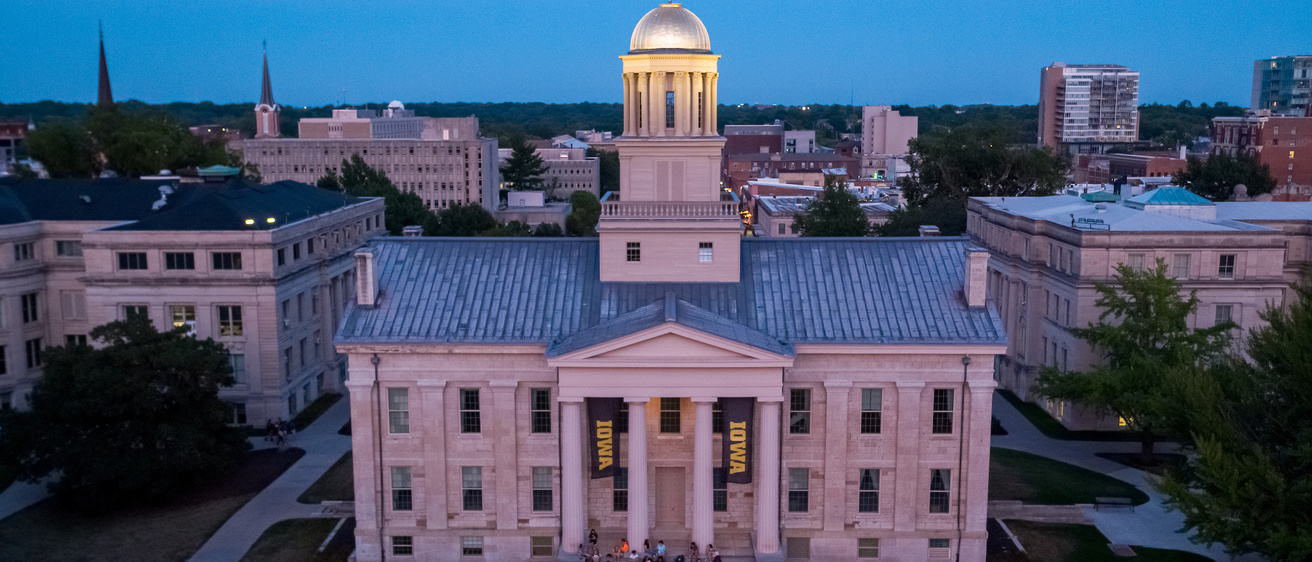The 2022 Campus Climate Survey is a snapshot of the University of Iowa culture during the spring 2022 semester. This report identifies key takeaways from the survey and shows how Iowa’s 2022-2027 Strategic Plan will help address improvement areas.
Our History
The Campus Climate Survey takes a snapshot of our culture every two years. The first survey occurred in 2018, collecting feedback from faculty, staff, undergraduate, and graduate students. The university surveyed only faculty and staff in 2020 during the COVID-19 pandemic. The student survey was administered in 202 with a version for professional students. The 2022 survey was administered in March to the entire campus community.
Our Goals
We know we are not perfect. This survey holds our institution accountable and aims to proactively use these learnings to identify areas of change. Specifically, this report:
- Gives a voice to the campus community on DEI perspectives.
- Provides clear direction to enact meaningful change.
- Identifies trends over time.
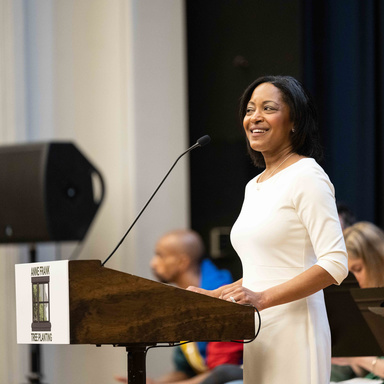
“The common thread from these findings is to continue our focus on unifying our campus culture.
To do this, we will continue to work with the strategic plan and campus leadership to build a common feeling of respect and accountability as outlined in our institutional mission and values.”
18 %
Students
4,679 responses from 26,290 administered
30 %
Faculty and Staff
5,759 responses from 19,290 administered
Student response breakdown:
16 %
Undergraduate
Administered to 19,757 with 3,070 respondents
37 %
Graduate
Administered to 3,182 with 1,190 respondents
13 %
Professional
Administered to 3,351 with 419 respondents
Faculty and staff response breakdown:
38 %
Faculty
Administered to 2,920 with 1,097 respondents
29 %
Staff
Administered to 16,155 with 4,624 respondents
18 %
Postdoctoral
Administered to 215 with 38 respondents
Response rates remain consistent over time:
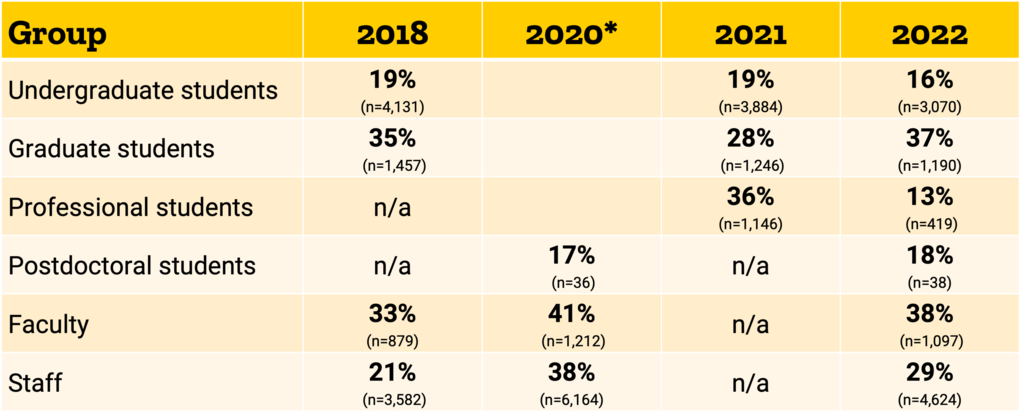
*The student survey was not administered in 2020 due to the COVID-19 pandemic.
Why this matters: The consistency of responses gives us a more holistic picture of our campus climate over time. The results of these findings are consistent with previous surveys.
Trends show our path forward: Each of the five areas below has received consistent responses in the three surveys completed (2018, 2020, 2022). This consistency gives us a clear path on areas of focus to provide a more welcoming and inclusive environment.
1. Students feel faculty encourage expression of diverse viewpoints.
While students reported mixed experiences with positive faculty interaction, Iowa continues to provide exceptional teaching and transformative educational experiences.
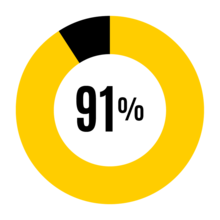
Undergraduate Students
n=2,433
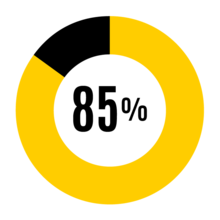
Graduate Students
n=938
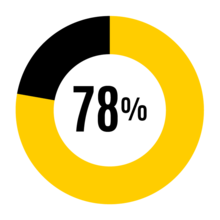
Professional Students
n=323
n=agreeing respondents | yellow=agree black=disagree
Supporting strategic plan tactics:
Enhance support, incentives, and structures that facilitate teaching excellence and student learning.
Expand structured guidance and support for student curricular and co-curricular learning and career planning and networking
Elevate the diverse mentoring networks that connect students with faculty, staff, peer leaders, and alumni.
Improve equitable access to distinctive, high-impact educational opportunities for students.
Expand opportunities and support for students, faculty, and staff to engage in mutually beneficial partnerships with communities across Iowa and around the world, including those with underserved populations
Explore improvements in infrastructure—including people, processes, policies, and technology—to support faculty, staff, and campus leadership in using institutional data to plan, implement, and assess efforts to advance individual and institutional succ
2. Hawkeyes feel valued.
Iowa is a place where a majority of our students, faculty, and staff feel valued.
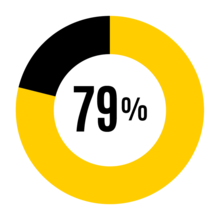
Undergraduate Students
n=2,430
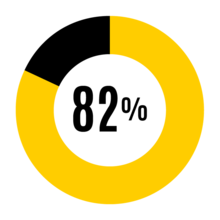
Graduate Students
n=874

Professional Students
n=343
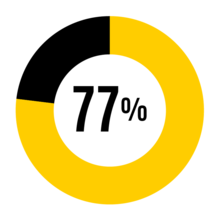
Faculty/Staff/Postdocs
n=4,248
n= agreeing respondents | yellow = agree | black = disagree
Supporting strategic plan tactics:
Evaluate and improve programs and policies to enhance diversity, equity, and inclusion throughout the university community
Promote expansion and campuswide awareness of physical spaces and resources that provide dedicated support for diverse students, faculty, and staff
Use best practices and data-driven, evidence-based policies and procedures to retain talented and diverse students, faculty, and staff
Develop a process for communicating and elevating the institution’s values related to diversity, equity, and inclusion through unified campuswide strategy, narratives, content, and promotion
Elevate the diverse mentoring networks that connect students with faculty, staff, peer leaders, and alumni.
Improve equitable access to distinctive, high-impact educational opportunities for students.
3. Campus culture impacts retention.
Reasons for faculty and staff considering leaving were related to workplace culture.
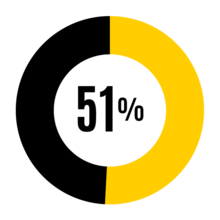
Faculty, Staff, and Postdoctoral students who responded
said they thought about leaving Iowa last year.
n=2,904 agreeing respondents | yellow = agree | black= disagree
Reasons for considering leaving: |
Percentage of respondents |
|---|---|
| Salary/better compensation |
62% |
| Primary workplace climate/culture | 59% |
| Career advancement opportunity | 43% |
| Lack of professional support | 41% |
| Bias against individuals like me | 41% |
| Campus climate/culture | 26% |
| Unresolved conflict with colleagues/co-workers | 22% |
| Personal/family reasons | 19% |
| Recruitment by a different institution/employer | 19% |
| Seeking more desirable geographic location | 17% |
Supporting strategic plan tactics:
Embed well-being and mental health into all aspects of campus culture to better support students, faculty, and staff
Promote institutional excellence and success by attracting and recruiting a talented body of students, faculty, and staff to create an inclusive and engaged community rich in diversity of experiences, perspectives, and expertise
Retain talented faculty and staff through professional development, recognition, and a culture of connection and employee value.
• Enhance and coordinate communication to better understand the emerging needs and priorities of stakeholders and also to more effectively represent the university’s impact as an extraordinary resource for leading-edge research, education,and health care
4. Commitment to DEI is important to us.
While we can always improve, our institution embodies its mission and core values of creativity, community, excellence, inclusivity, and integrity.
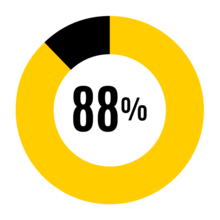
Undergraduate Students
n=2,324
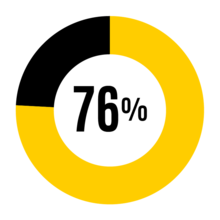
Graduate Students
n=803
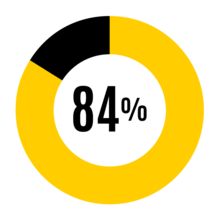
Professional Students
n=346
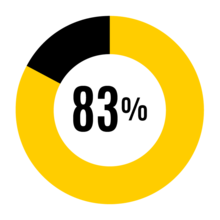
Faculty/Staff/Postdocs
n=4,731
n=agreeing respondents | yellow=agree black=disagree
Supporting strategic plan tactics:
Expand opportunities and support for students, faculty, and staff to engage in mutually beneficial partnerships with communities across Iowa and around the world, including those with underserved populations.
Enhance support, incentives, and structures that facilitate teaching excellence and student learning.
Elevate the diverse mentoring networks that connect students with faculty, staff, peer leaders, and alumni.
Evaluate and improve programs and policies to enhance diversity, equity, and inclusion throughout the university community.
5. Bias impacts the workplace.
While a large number of our faculty and staff respondents (64%) did not report experiencing negative bias, those who did indicate it impacted their work performance, health, or confidence to some extent.
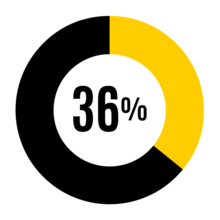
Faculty, staff, and postdoctoral respondents who reported experiencing negative bias.
n=2,099
When asked about the areas in which negative bias impacted them, these respondents answered:
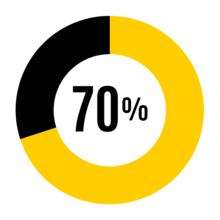
Bias interfered with my work performance
n=1,461
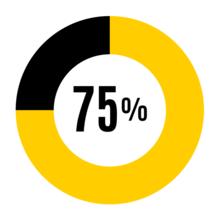
Bias caused me to consider leaving the university.
n=1,580
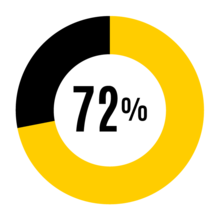
Bias affected my mental and/or physical health
n=1,508
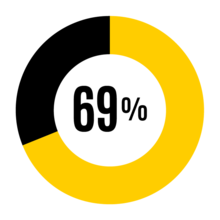
Bias eroded my confidence in my abilities
n=1,440
n=agreeing respondent | yellow=agree black=disagree
Supporting strategic plan tactics:
Embed well-being and mental health into all aspects of campus culture to better support students, faculty, and staff
Evaluate and improve programs and policies to enhance diversity, equity, and inclusion throughout the university community.
Promote expansion and campuswide awareness of physical spaces and resources that provide dedicated support for diverse students, faculty, and staff
Use best practices and data-driven, evidence-based policies and procedures to retain talented and diverse students, faculty, and staff.
Next Steps
Following the release of this report, the Division of Diversity, Equity, and Inclusion staff are immediately engaging representatives at University of Iowa colleges and units to discuss this data.
College/Unit leadership is encouraged to increase awareness of the findings from this survey at a unit/departmental level and to inform the implementation of the 2022-2027 Strategic Plan goals and tactics. Especially those leading to expanding DEI commitment, addressing negative workplace culture, and strengthening educational efforts at all levels.
Within and beyond the scope of these specific reports, our division’s staff are also available to:
- Facilitate workshops to increase awareness and engagement with a variety of diversity, equity, and inclusion topics
- Address long-term strategies for building inclusive workplace climates.
-
The team:
-
The division would like to thank the following for their work and support of the Campus Climate Survey efforts.
- Matt Anson, Office of Assessment
- Kimberly Carter, Office of the Executive Vice President & Provost
- Steven Edwards, Division of Diversity, Equity, and Inclusion
- Jiongting Hu, University Human Resources
- Bria Marcelo, Division of Diversity, Equity, and Inclusion
- Isandra Martínez-Marrero, Division of Diversity, Equity, and Inclusion
- Dawn Moore, Information Technology Services
- Maurine Neiman, College of Liberal Arts & Sciences
- Chuy Renteria, Division of Diversity, Equity, and Inclusion
- Erin Stresow, Division of Diversity, Equity, and Inclusion
- Charlie Taylor, Division of Diversity, Equity, and Inclusion
- Elizabeth Tovar, Division of Diversity, Equity, and Inclusion
2022 Student Survey Implementation and Analysis Team:
Learn more.

Strategic Planning Discussions
Elizabeth Tovar
Associate Vice President and Executive Officer
Diversity, Equity, and Inclusion

Campus Climate Survey
Isandra Martínez-Marrero
Director of Cultural Engagement and Analytics
Division of Diversity, Equity, and Inclusion

Training Opportunities
Brianna Marcelo
Director of Inclusive Education & Strategic Initiatives
Division of Diversity, Equity, and Inclusion

Media Inquiries
Charlie Taylor
Senior Advisor, Director of Communications
Division of Diversity, Equity, and Inclusion
The University of Iowa prohibits discrimination in employment, educational programs, and activities on the basis of race, creed, color, religion, national origin, age, sex, pregnancy (including childbirth and related conditions), disability, genetic information, status as a U.S. veteran, service in the U.S. military, sexual orientation, gender identity, or associational preferences. The university also affirms its commitment to providing equal opportunities and equal access to university facilities. For additional information on nondiscrimination policies, contact the Director, Office of Institutional Equity, the University of Iowa, 202 Jessup Hall, Iowa City, IA 52242-1316, 319-335-0705, oie-ui@uiowa.edu.
